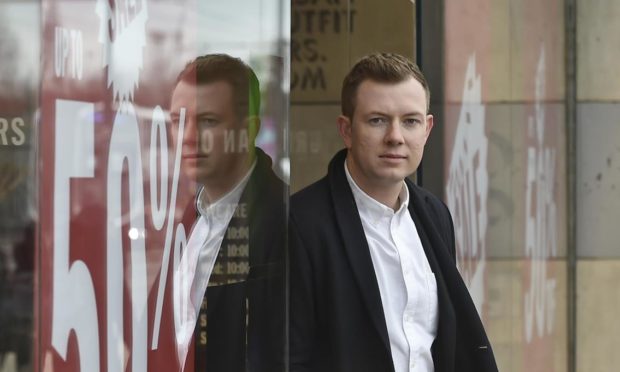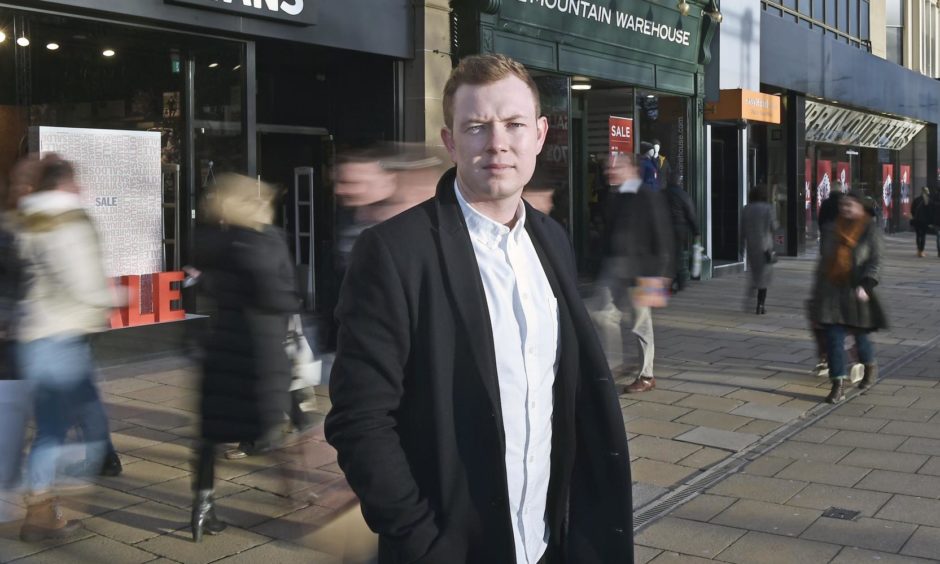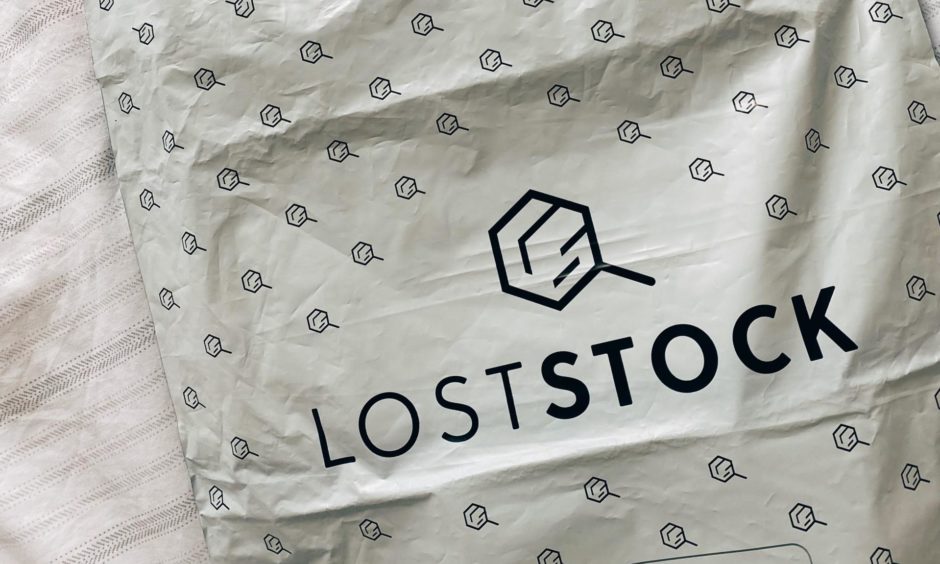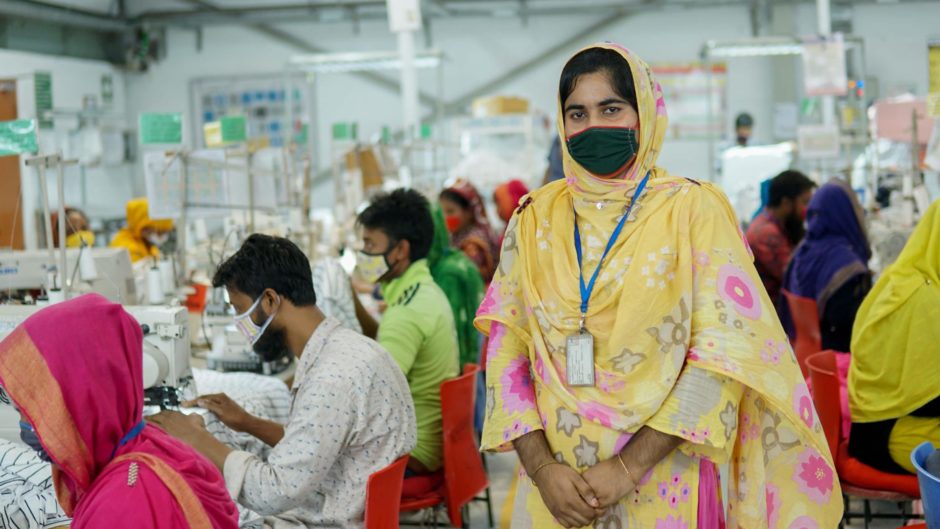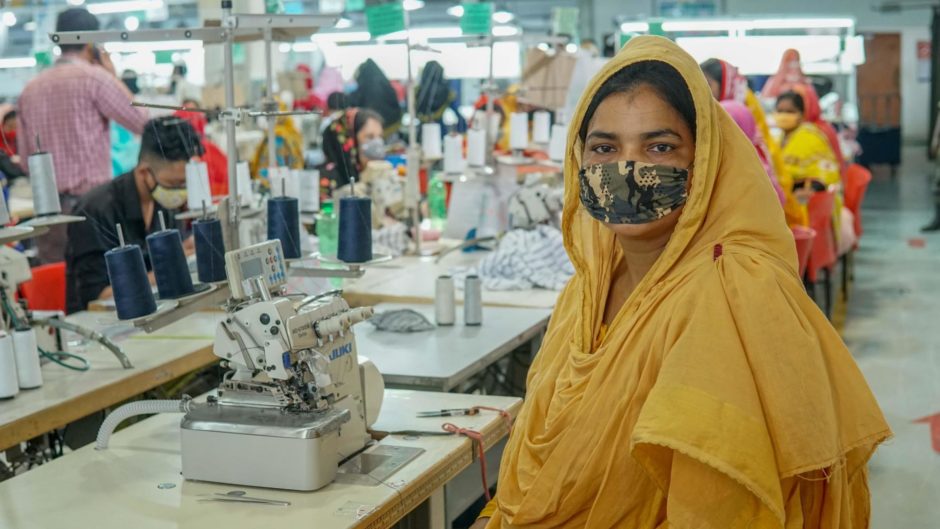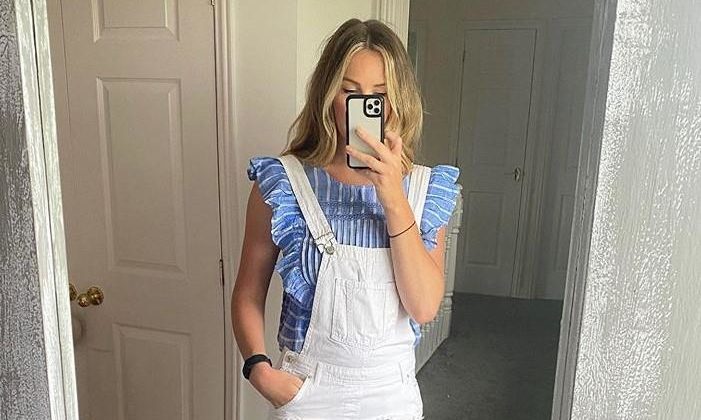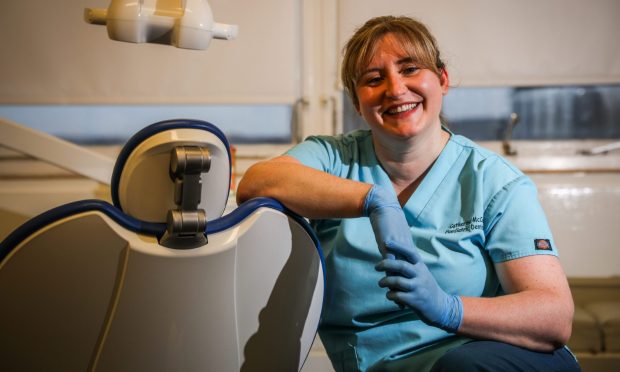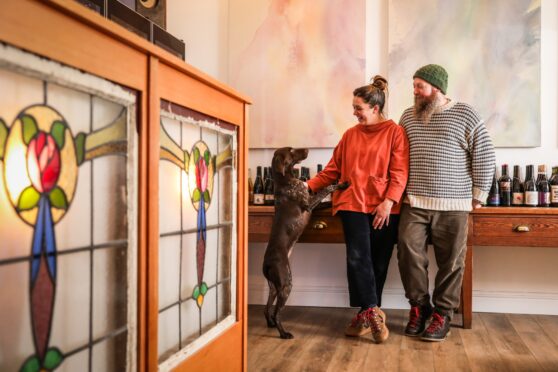One factory worker had ‘no idea how to put food on the table’ after work dried up in March 2020.
When Lost Stock launched two months later in May 2020, Cally Russell aimed to sell 10,000 boxes to help garment workers.
They ended up selling over 125,000 in just eight months.
“I always think about things in the scale of the place I was brought up,” Cally explains. “Dunoon has about 10,000 people, so when we started we thought if we could sell maybe 10,000 of these then that’s pretty powerful.
“We soon realised that people wanted to be involved. When we finished we were at just over 125,000 boxes.”
Lost Stock was the brainchild of the team at Mallzee, an Edinburgh-based shopping app and website that aims to take the hassle out of clothes buying online.
Who is Cally Russell?
Cally, 32, is Mallzee’s founder and CEO. Born in Lanark, he moved to Dunoon when he was a little boy. Cally attended Dunoon Grammar School before studying politics with international relations at the University of Dundee.
He lived on the Perth Road above the Tay Bridge Bar and worked in the Orange shop in the Overgate selling mobile phones. He smiles: “Always selling something.”
Since graduating in 2009, he has lived in Edinburgh. After a stint at public affairs firm Weber Shandwick, he was involved in “a bunch of different start-ups which evolved into Mallzee, which has led us to Lost Stock”.
In 2015 Cally appeared on BBC show Dragons’ Den. He walked away from an offer of £75,000 by dragon Peter Jones after they could not agree on terms.
No wages
In March 2020, all non-essential shops in the UK closed their doors to shoppers. It was the beginning of a cycle of events that would have a devastating effect on garment workers across the world.
Cally says: “When the first lockdown hit we started to hear stories about the break in the supply chain. We saw news reports of people cancelling stock, not paying for stock and realised we could do something about that.”
Retailers rescinded orders for clothes that were ready for shipping or already in production. More than £1.4 billion worth of stock was cancelled in countries including Bangladesh, India and China.
Many manufacturers received little or no payment for these items – even though they had already incurred the costs of production. This meant millions of workers were not being paid any wages.
The Lost Stock initiative allowed customers to buy a box of this cancelled stock for less than they would pay from a high street retailer.
For every box sold, it could support a garment worker and their family for a week. Boxes were available from May last year and the final packages were sold in early January.
In Bangladesh, the garment industry accounts for 84% of the country’s exports, and 2.28 million workers were affected by stock cancellations.
Cally continues: “I really do love the idea of shopping local, but what we all have to appreciate and understand is that we have spent the last 30 to 40 years creating global supply chains and there are parts of the world whose economies are entirely linked to ours.
“Over the space of about a month, the team members who weren’t on furlough worked up the concept of Lost Stock. It was designed to be really simple: If all these products have been cancelled and all the stock abandoned, let’s find a way to sell it.”
Cally and his team considered different ways of distributing the stock.
Mystery box
“We eventually came up with the idea that we would get people to tell us their size, their age, what colours they liked and we would sell it to them as a mystery box,” he says.
By partnering with the Bangladeshi non-profit organisation SAJIDA Foundation, they were able to get aid to families fast.
The boxes cost £35 plus £3.99 shipping and 28% of each sale was donated to SAJIDA foundation. Lost Stock also paid factories for cancelled stock.
“If we could try to get money to the earliest point in the supply chain, we could hopefully alleviate some of the problems facing some garment workers and their families,” Cally adds.
“For me, probably the most emotional point in all of this was seeing the names of the people who had been helped in the first wave of support.
“Thousands of people who have received support and money from something your team had thought up and worked hard to create is a really powerful moment.
“You’ve stepped up and tried to do something different.”
By the end of the scheme, support had been provided to over 27,000 garment workers with an average family size of 4.1.
‘Extremely difficult’
Nurani, aged 35, was the only person in her family earning money following the death of her husband.
“I have to take care of my mother and daughter,” she said.
“During this pandemic, a lot of us did not get our full salary and it was extremely difficult to feed a family of three. As a woman, every day I have to face many challenges in this society.”
Farida Akhta, 34, said: “Making ends meet had always been a challenge for me with minimum wage and my husband losing his job.
“When the pandemic hit the country, it hit us hard as well. My work at the garments was off and our futures seemed bleak without the support of SAJIDA Foundation. We don’t want to give up, we want to pick ourselves up and start anew.”
Tuli, 26, lost her job at the beginning of the global lockdown and employment was hard to find.
“My in-laws depend heavily on my earnings for their livelihood. My husband also suffered a salary cut, she said.
Virus crisis
Jesmin, 41, said: “My sole monthly income was what put a roof over my family’s head and fed their stomachs. Our company stopped receiving orders because of the virus crisis and a lot of us were let go from our jobs.
“The uncertainty of the lockdown felt as if someone had snatched the ground from under my feet. I could reach no one for help and had no idea how to put food on the table.”
As Lost Stock prepared to wrap up in January, SAJIDA foundation released a statement: “We at SAJIDA Foundation thank everyone who has bought a Lost Stock box. Over 125,000 weeks’ worth of support has been generated which enormously surpassed the expectations when we started the project.”
Setting up a global supply chain during a pandemic was no mean feat and sometimes things didn’t run too smoothly. Demand for the mystery boxes was higher than Cally had initially anticipated, which meant customers had to be patient.
“We launched very quickly from an initial idea,” Cally says.
“With that comes lots of challenges and all the way through we have been very open about that. Some people said ‘You should have capped it or stopped’ but that would have capped the impact we had.
“If it meant people had to wait a bit longer or we had to work harder, I would much rather that.
“We’ve said all the way through that we didn’t do everything perfectly and there are loads of things that you would change and fix as you went through it – but we were doing everything for the first time.
“What we tried to achieve was big and we did it very quickly from scratch. Building a global supply chain in the middle of a pandemic from scratch is a very difficult thing to do.”
Workers trolled
As a CEO, Cally managing the opinions of others comes with the territory. But he was upset when his staff were targeted with abuse on social media.
“At one point, we ended up being trolled by a group of people who were never customers and it became quite a personal thing,” he says.
“Some of the things that were directed at our staff upset me. I am the face of this – and I am happy to put myself out there – but when I see it directed at other people I feel that’s not acceptable.”
Cally has nothing but praise for the Lost Stock team, saying they worked “day and night” to get boxes distributed.
He adds that now Lost Stock is finished there will be a bit of reflection on the past year before moving on: “What we are going to do to finish off the project is to create a report saying this is how it all happened.
“For me, I hope that will provide learnings – not just to our experience – but also so people can understand the wider context.”
Cally says the fashion retail industry continues to be quite “hidden” and he’d like consumers to understand the sector more, with less “disconnect” to the story of a garment’s origin and production.
“We have taken a huge amount from this. We keep asking brands to be better and I think 2020 showed a lot of that,” he says.
“Maybe it’s time to build better brands – and maybe that’s where we can make an impact in the future.”
You can read Lost Stock’s impact report here
